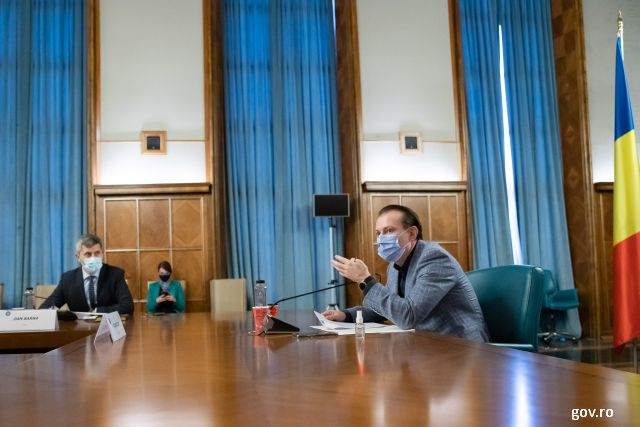Easing restrictions depends on vaccination
Romanian authorities urge the population to get the Covid vaccine so that restrictions can be gradually lifted.

Bogdan Matei, 23.04.2021, 14:00
First adopted in May last year after two
months of state of emergency, the state of alert has since been extended every
month in Romania and for the time being this is likely to happen again
indefinitely. The coronavirus pandemic exposed decade-old dysfunctions, spared
no one and affected the entire Romanian economy and society. On top of that
came the restrictions imposed in order to curb the spread of the virus, from
the mandatory wearing of facemasks to physical distancing and limited freedom
of movement and assembly.
The authorities have kept insisting that a
return to normality, possibly from 1st June, can only begin after
vaccination. Prime minister Florin Cîţu says this date is an important landmark
in the fight against the pandemic, which depends on the immunisation of at
least a third of the country’s population. Florin Cîţu:
It doesn’t mean that everything will go
back to normal from 1st June, but it’s a first step, an important
step. I said we could do this if almost 35% of the country’s population has
been given the vaccine. It’s up to us. Just as it’s been up to us so far, it is
up to us to return to normality. I know I’ve been saying this a lot, but it really
is up to us. A successful vaccination campaign can also bring back normality in
Romania.
The head of the Romanian government also
said that wearing facemasks will continue to be mandatory until 10 million
people receive the Covid vaccine, meaning half of the population. However, a survey
conducted by MedLife, one of the biggest health providers in Romania, estimates
that Romania will only achieve a 26-31% vaccination rate by the end of the
year, amounting to some 5 million people. Only 10-13% of the population are
determined to get the vaccine anytime soon and only a third view vaccination as
effective. Things are somewhat better in cities, where 33-38% of people above
the age of 16 say they want to get the vaccine by the end of the year. In the rural
areas, however, the estimated vaccination rate by December is 19-23%. Men,
people over the age of 50 and people who have already had average or severe
forms of the virus are more open to vaccination. Also, people with a higher
level of education are more willing to get the vaccine.
The fear of side effects, both immediate
and long term, and the lack of confidence in the authorities and the healthcare
system are the main reasons for opposition to vaccination. This is why, the
MedLife survey suggests, trusted institutions such as the church and the army
and civic organisations must be involved in the campaign to promote
vaccination. (CM)






























